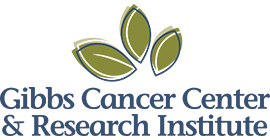Gemcitabine and Irinotecan in Treating Patients With Locally Advanced Unresectable or Metastatic Kidney Cancer
| Status: | Terminated |
|---|---|
| Conditions: | Cancer, Cancer, Kidney Cancer |
| Therapuetic Areas: | Oncology |
| Healthy: | No |
| Age Range: | 18 - 120 |
| Updated: | 7/18/2018 |
| Start Date: | September 2003 |
| End Date: | July 2009 |
Phase II Study of Gemcitabine and CPT-11 (Irinotecan) in Unresectable or Metastatic Renal Cell Carcinoma
RATIONALE: Drugs used in chemotherapy, such as gemcitabine and irinotecan, work in different
ways to stop tumor cells from dividing so they stop growing or die. Combining more than one
drug may kill more tumor cells.
PURPOSE: This phase II trial is studying how well giving gemcitabine together with irinotecan
works in treating patients with locally advanced unresectable or metastatic kidney cancer.
ways to stop tumor cells from dividing so they stop growing or die. Combining more than one
drug may kill more tumor cells.
PURPOSE: This phase II trial is studying how well giving gemcitabine together with irinotecan
works in treating patients with locally advanced unresectable or metastatic kidney cancer.
OBJECTIVES:
Primary
- Determine response in patients with locally advanced unresectable or metastatic renal
cell carcinoma treated with gemcitabine and irinotecan.
Secondary
- Determine the duration of response in patients treated with this regimen.
- Determine the tolerance to and toxicity of this regimen in these patients.
- Determine median and progression-free survival in patients treated with this regimen.
OUTLINE: Patients receive gemcitabine IV over 30 minutes and irinotecan IV over 90 minutes on
days 1 and 8. Treatment repeats every 21 days for 6-8 courses in the absence of disease
progression or unacceptable toxicity. Patients receive 2 additional courses beyond best
response.
Patients are followed every 3 months for 1 year, every 6 months for 2 years, and then
annually thereafter.
PROJECTED ACCRUAL: A total of 12-36 patients will be accrued for this study within 30 months.
Primary
- Determine response in patients with locally advanced unresectable or metastatic renal
cell carcinoma treated with gemcitabine and irinotecan.
Secondary
- Determine the duration of response in patients treated with this regimen.
- Determine the tolerance to and toxicity of this regimen in these patients.
- Determine median and progression-free survival in patients treated with this regimen.
OUTLINE: Patients receive gemcitabine IV over 30 minutes and irinotecan IV over 90 minutes on
days 1 and 8. Treatment repeats every 21 days for 6-8 courses in the absence of disease
progression or unacceptable toxicity. Patients receive 2 additional courses beyond best
response.
Patients are followed every 3 months for 1 year, every 6 months for 2 years, and then
annually thereafter.
PROJECTED ACCRUAL: A total of 12-36 patients will be accrued for this study within 30 months.
DISEASE CHARACTERISTICS:
- Histologically confirmed renal cell carcinoma
- Locally advanced unresectable or metastatic disease
- Unidimensionally measurable disease by physical exam or imaging study
- The following are not considered measurable disease:
- Bone only disease
- Pleural or peritoneal effusions
- CNS lesions
- Irradiated lesions unless disease progression was documented after
radiotherapy
PATIENT CHARACTERISTICS:
Age
- Over 18
Performance status
- ECOG 0-2
Life expectancy
- Not specified
Hematopoietic
- Granulocyte count ≥ 1,500/mm^3
- Platelet count ≥ 100,000/mm^3
Hepatic
- ALT and AST < 3 times upper limit of normal
- Bilirubin ≤ 2.0 mg/dL
Renal
- Creatinine ≤ 2.0 mg/dL
Gastrointestinal
- No active inflammatory bowel disease
- No significant bowel obstruction
- No chronic diarrhea
Other
- Not pregnant or nursing
- Negative pregnancy test
- Fertile patients must use effective contraception during and for 6 months after study
participation
- No mental incapacitation or psychiatric illness that would preclude giving informed
consent
- No other active malignancy except nonmelanoma skin cancer
- No other severe disease that would preclude study participation
PRIOR CONCURRENT THERAPY:
Biologic therapy
- At least 4 weeks since prior immunotherapy
- No concurrent prophylactic filgrastim (G-CSF) or sargramostim (GM-CSF)
Chemotherapy
- No prior chemotherapy
- No other concurrent chemotherapy
Endocrine therapy
- No concurrent hormones except steroids for adrenal failure, hormones for
non-disease-related conditions (e.g., insulin for diabetes), or intermittent
dexamethasone as an antiemetic
Radiotherapy
- See Disease Characteristics
- At least 4 weeks since prior radiotherapy
- No concurrent palliative radiotherapy
Surgery
- Not specified
Other
- No concurrent participation in another clinical trial
We found this trial at
2
sites
101 E Wood St
Spartanburg, South Carolina 29303
Spartanburg, South Carolina 29303
(864) 560-6000

Gibbs Regional Cancer Center at Spartanburg Regional Medical Center Gibbs Cancer Center is a nationally...
Click here to add this to my saved trials
86 Jonathan Lucas Street
Charleston, South Carolina 29425
Charleston, South Carolina 29425
(843) 792-0700

Hollings Cancer Center at Medical University of South Carolina Located at the Medical University of...
Click here to add this to my saved trials